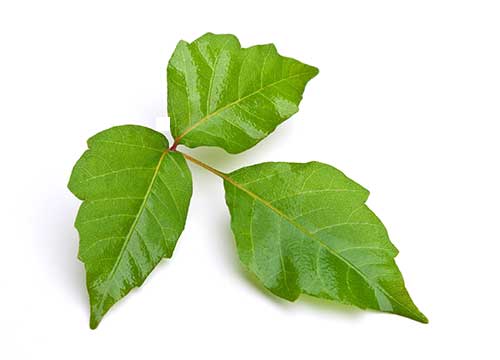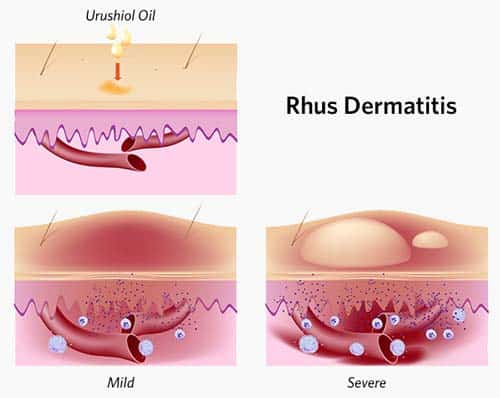Poison ivy is a notorious plant that can turn a pleasant outdoor adventure into an itchy nightmare. But what exactly makes this plant so irritating, and how does it cause that infamous rash? Let's dive into the science behind poison ivy, why it affects our skin, and how you can protect yourself and your family.
What Causes Poison Ivy Rash?
The culprit behind the rash is a substance called urushiol, an oily resin found in poison ivy, poison oak, and poison sumac. When urushiol comes into contact with your skin, it binds to histamine receptors in skin cells, triggering an immune response. Your body's natural defenses consider urushiol a threat and send white blood cells to the area, causing inflammation, redness, and that telltale itch.

Understanding Urushiol: The Cause of the Rash
Urushiol is a potent allergen responsible for the irritation caused by poison ivy. It is a colorless or slightly yellow oil that is present in almost every part of the plant, including the leaves, stems, and roots. This resin is extremely stable and can remain active on surfaces for years, meaning that old clothing, tools, or even dead plants can still cause a reaction if they carry urushiol.
When urushiol touches the skin, it doesn’t cause immediate symptoms. Instead, it begins to penetrate the skin, where it binds to proteins in the skin cells. This process transforms the skin cells into what your immune system identifies as a foreign substance, sparking an allergic reaction. The severity of the reaction can vary widely from one person to another, depending on their sensitivity and the amount of urushiol that comes into contact with the skin.

How Does Poison Ivy Affect the Skin?
Once urushiol touches your skin, it starts to penetrate almost immediately. Within 8 hours, you may begin to notice a red, swollen rash that can blister and become extremely itchy. The severity of the reaction depends on the amount of urushiol that contacts the skin and individual sensitivity. Surprisingly, only about 85% of people are allergic to urushiol, meaning that a small amount of the population won't experience a rash, no matter how much they come into contact with the plant.
Can You Spread Poison Ivy Rash?
One of the most common myths about poison ivy is that the rash can spread from person to person. The truth is, the rash itself isn't contagious. You can't catch poison ivy from someone else unless you touch the urushiol on their skin, clothing, or other items they've come into contact with. That’s why it's crucial to wash everything that may have touched the plant, including your clothes, gear, and even your pets.
How to Protect Yourself from Poison Ivy
Understanding how poison ivy works is the first step in protecting yourself. Here are some tips to help you avoid the dreaded rash:
- Learn to Identify Poison Ivy: Familiarize yourself with the plant's appearance—its leaves typically grow in clusters of three, with smooth or slightly toothed edges.
- Wear Protective Clothing: Long sleeves, pants, and gloves can help shield your skin from contact with urushiol.
- Cleanse Skin Immediately: If you think you've brushed up against poison ivy, washing your skin as soon as possible can remove the urushiol before it has a chance to cause a reaction.
What to Do If You Get a Poison Ivy Rash
Even with the best precautions, accidents happen. If you find yourself dealing with a rash, here’s what you can do:
- Wash the Area: As soon as you notice contact, wash the affected skin with Tecnu Original Outdoor Skin Cleanser. It’s specially formulated to remove urushiol from your skin, helping to prevent the rash from developing.
- Soothe the Itch: Applying Tecnu Rash Relief Spray can help calm the itch and reduce inflammation. This maximum-strength anti-itch spray contains grindelia providing fast instant relief from the discomfort.
- Prevent Infection: Scratching the rash can lead to infection. Keep the area clean to prevent bacteria from causing further complications.
Poison ivy is more than just a pesky plant—it's a biological irritant that can cause significant discomfort if not handled properly. By understanding how poison ivy works and taking the right precautions, you can enjoy your time outdoors without fear. And if you do happen to encounter this itchy invader, Tecnu's line of products is here to help you find relief quickly and effectively.




